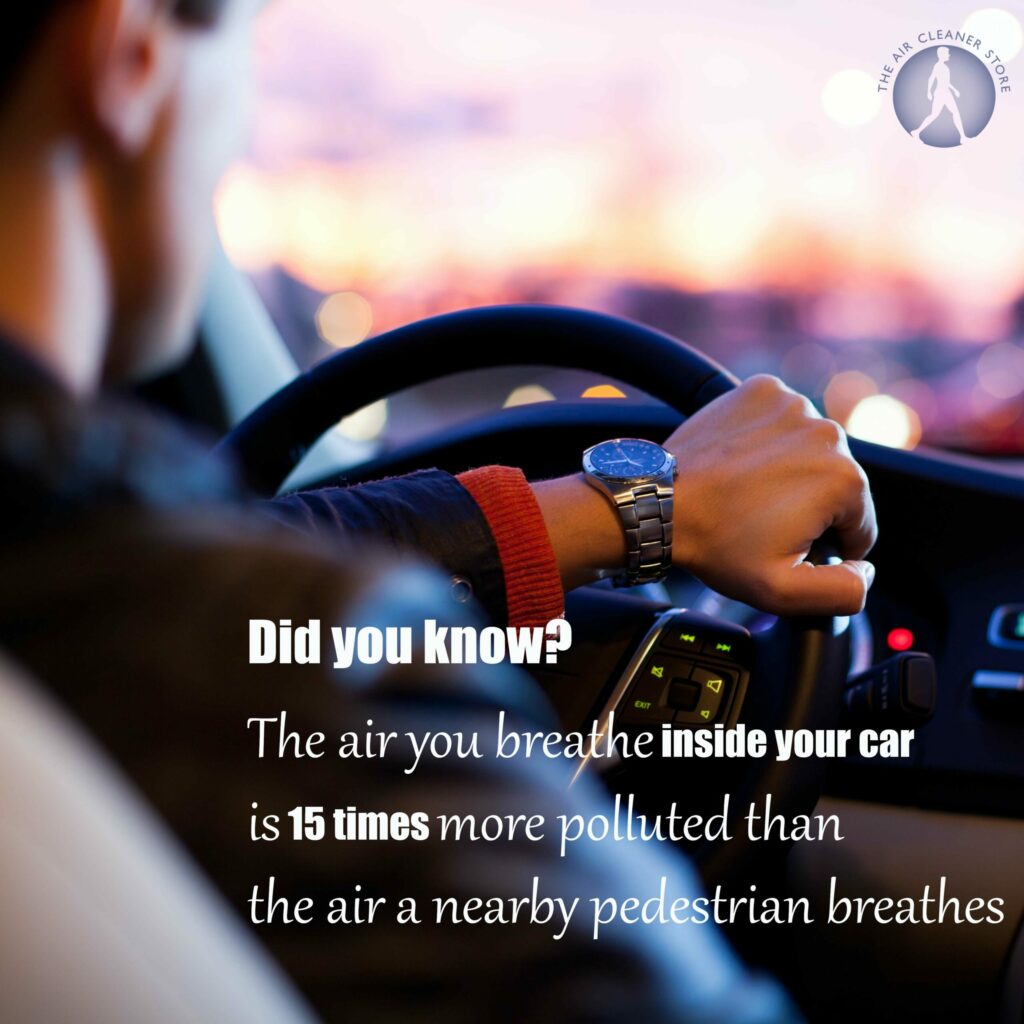We are all aware of the dangers of car exhaust fumes and how harmful they are for our health.
While walking down a busy street you are likely to inhale car exhaust fumes. You might be surprised to learn that outdoor air quality alongside an active road is probably better than the air quality inside of the cab of a passing vehicle?
While outdoor air pollution from vehicle emissions has been the subject of study for decades, researchers are now discovering that the air inside of our vehicles is actually more harmful to our health. The air inside of your car can be up to 15 times more polluted than the outside air!
What makes in-car air so polluted?
Most of the air pollution inside of your car enters from the outside as you travel, through open windows and air vents. Gasoline and diesel exhaust fumes contain a number of dangerous pollutants, including particulate matter, volatile organic compounds (VOCs), nitrogen oxides and carbon monoxide.
Additionally, cars absorb pollutants from nearby vehicles and recirculate them. According to studies, up to half of the pollutants inside of cars come from the vehicles ahead of them, especially if those vehicles are heavy polluters like diesel trucks.
Automobiles are not designed to be airtight. This makes it easy for pollutants to reach the cabin through air vents and other openings.
Furthermore, toxic chemical concentrations are strongest on the road’s centerline. Pollution levels in the middle of the road can be many times greater than concentrations on the side of the road. This toxic air can get into your vehicle.
What can you do about it?
While it may seem like there is little you can do to fix this problem, there are a few steps you can take to reduce in-car air pollution.
- Maintain a safe distance between you and the vehicles ahead of you, especially diesel trucks.
- Close your windows and use the car’s ventilation system to recirculate the cabin air when you’re stuck in traffic or at a stop sign or signal.
- Even if it takes a little longer, try to use less congested roads with fewer traffic lights. Avoid driving during rush hour if possible.
- Don’t rely too much on the traditional in-car air filtration devices. These devices may not be able to get rid of ultrafine particulates, volatile organic compounds, carbon monoxide, or other contaminants. They also don’t filter the air that comes in through the windows and door cracks of your vehicle.
- Avoid using car air fresheners or deodorizers because they contain toxic VOCs and actually worsen the air quality.
- Maintain the cleanliness of your vehicle’s interior. Exhaust pollution can mix with dust particles and be even more dangerous.
- Avoid using chemical cleaners inside the cab of your car.
